
The Formula 3000 International Championship was a motor racing series created by the Fédération Internationale de l'Automobile (FIA) in 1985 to become the final preparatory step for drivers hoping to enter Formula One. Formula Two had become too expensive, and was dominated by works-run cars with factory engines; the hope was that Formula 3000 would offer quicker, cheaper, more open racing. The series began as an open specification, then tyres were standardized from 1986 onwards, followed by engines and chassis in 1996. The series ran annually until 2004, and was replaced in 2005 by the GP2 Series.

Gianmaria "Gimmi" Bruni is an Italian Porsche factory auto racing driver who drove in the 2004 Formula One World Championship for Minardi. He is a GP2 Series race winner and is now racing in the FIA World Endurance Championship, in which he gained the 2013 and 2014 GT Drivers' Titles whilst driving as a factory Ferrari driver. He won the 2008 FIA GT Championship, 2011 Le Mans Series and 2012 International GT Open and took three class victories at the 24 Hours of Le Mans, in 2008, 2012 and 2014. He also was successful at the 2009 and 2015 24 Hours of Spa-Francorchamps, 2010 12 Hours of Sebring and 2011 Petit Le Mans.
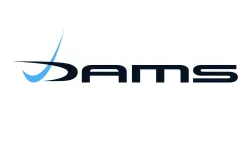
DAMS is an auto racing team from France, involved in many areas of motorsport. DAMS was founded in 1988 by Jean-Paul Driot and former Formula One driver René Arnoux. In 2022 it was bought by ex-F1 driver Charles Pic. It is headquartered near Le Mans, only 2 km from the Bugatti Circuit.
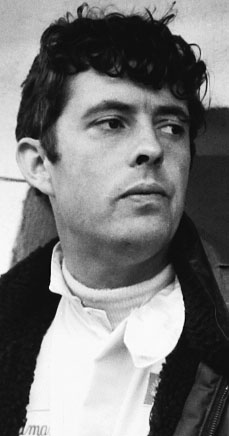
Brian Herman Thomas Redman is a British retired racing driver.

Jean-Christophe Joël Louis "Jules" Boullion is a French racing driver who raced in Formula One for the Sauber team.

Robert "Robbie" Kerr is a British racing driver. In 2002, Kerr won the British Formula 3 championship.

The World Sportscar Championship was the world series run for sports car racing by the FIA from 1953 to 1992. The championship evolved from a small collection of the most important sportscar, endurance, and road racing events in Europe and North America with dozens of gentleman drivers at the grid to a professional racing series where the world's largest automakers spent millions of dollars per year.
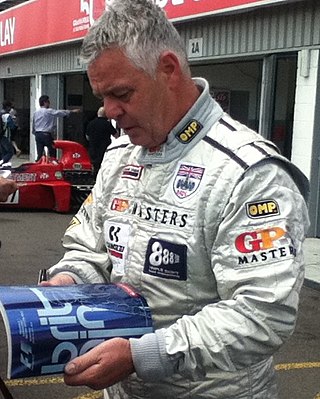
The 1992 Sportscar World Championship season was the 40th and final season of FIA World Sportscar Championship motor racing. It featured the 1992 FIA Sportscar World Championship, which was contested over a six race series which ran from 26 April to 18 October 1992. The championship was open to Group C Sportscars.

The 1980 World Sportscar Championship season was the 28th season of FIA World Sportscar Championship motor racing. It featured the 1980 World Championship for Makes which was contested as a series running under both Fédération Internationale de l'Automobile (FIA) and International Motor Sports Association (IMSA) regulations. It ran from 2 February 1980 to 28 September 1980, and comprised 11 races, including races run with Camel GT Championship.
The FIA Sportscar Championship was a sports car racing series created by John Mangoletsi and got the approval of the Fédération Internationale de l'Automobile (FIA) in 2001. It was a series similar to the FIA GT Championship, concentrating on two classes of open-cockpit sports prototypes in endurance races mostly around Europe. The series was folded after the 2003 season.
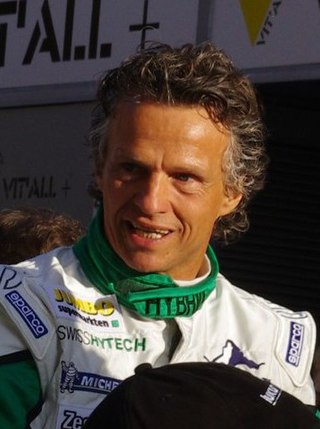
The 2003 FIA Sportscar Championship was the third season of FIA Sportscar Championship, an auto racing series regulated by the Fédération Internationale de l'Automobile and organized by the International Racing Series Ltd. It was the seventh and final season of the series dating back to the International Sports Racing Series of 1997. The series featured sports prototypes divided into two categories, SR1 and SR2, and awarded championships for drivers, constructors, and teams in both classes. The series began on 13 April 2003 and ended on 21 September 2003 after seven races in Europe.

The 2002 FIA Sportscar Championship was the second season of the FIA Sportscar Championship, an auto racing series regulated by the Fédération Internationale de l'Automobile and organized by the International Racing Series Ltd. It was the sixth season of the series dating back to the International Sports Racing Series of 1997. The series featured sports prototypes in two categories, SR1 and SR2, and awarded championships for drivers, teams, and manufacturers in each respective category. The series began on 7 April 2002 and ended on 22 September 2002 after six races held in Europe.
The 2001 FIA Sportscar Championship was the inaugural season of FIA Sportscar Championship, an auto racing series regulated by the Fédération Internationale de l'Automobile and organized by International Racing Series Ltd. The series was a continuation of the previous SportsRacing World Cup dating back to 1997. It was open to two categories of sports prototypes, SR1 and SR2, and awarded championships to drivers and teams in each category. A championship for constructors was also established for this season. It began on 8 April 2001 and ended on 16 September 2001 after eight races.
Advanced Engine Research, Ltd. is an auto racing engine manufacturer based in Basildon, Essex, England. Established in 1997, AER has developed winning engines for a number of high-profile international race series in sports car, prototype racing, rallying, touring car, and open wheel racing. They have designed engines derived from road car platforms, but their emphasis is on clean sheet designed engines with a focus on electronics and turbochargers. Their engines have raced in the 24 Hours of Le Mans, the World Endurance Championship (WEC), the European Le Mans Series (ELMS), the IMSA SportsCar Championship, GP3, British Touring Car Championship (BTCC), Nissan/Renault World Series, Grand-Am, Paris Dakar and FIA Sportscar Championship. They have worked with a number of manufacturers including Mazda, Ford, Hyundai, MG/Rover, Nissan, and Toyota. In 2012, AER developed and built Formula One turbo test engines to current rules and in July 2012, AER was chosen as engine partner and supplier to the new GP3 racing series. They currently supply engines for the Indy Lights series.
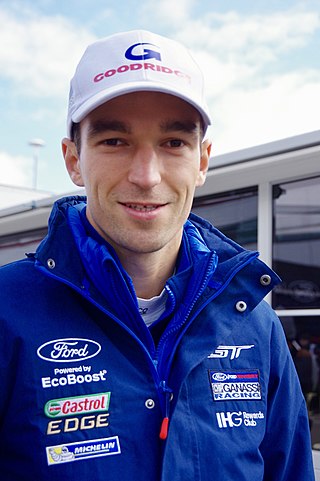
Harry William Tincknell is a British professional racing driver currently racing in the FIA World Endurance Championship for Dempsey-Proton Racing. He won the LMP2 class on his Le Mans 24 Hour race debut in 2014 and again in LMGTE Pro in 2020, the first driver in the race's history to win in both LMP2 and LMGTE Pro. Other notable victories include the 2016 European Le Mans Series title and the overall win at the 2020 12 Hours of Sebring.
The following outline is provided as an overview of and topical guide to auto racing:

The Debora LMP296 was a Le Mans Prototype, built by Debora Automobiles in 1996 for use in the 24 Hours of Le Mans. The car was originally entered with a 2-litre turbocharged Cosworth straight-four engine, but several other engines were used in the car's three-year career. Two cars are known to have been built. In conjunction with the LMP297, the car helped Waterair Sport to the International Sports Racing Series SR2 Team's Championship in 1998. The LMP296 was updated into the LMP299 for 2000.

Matthieu Vaxivière is a French racing driver from Limoges, who currently drives for Alpine in the Hypercar class of the FIA World Endurance Championship.
The Rapier 6 was a sports prototype racing car built by LM3000 in 1999. It used a 3-litre Nissan V6 engine, and Team Sovereign ran the car in the FIA Sportscar Championship. The car achieved moderate success, and Team Sovereign retired it at the end of the 2003 season, after the series folded. In 2011, it reappeared in the Britcar series, being driven by Mike Millard.

Jota Sport is a British sports car racing team. Founded as Team Jota by Sam Hignett and John Stack, Jota Sport is part of the Jota Group which is owned by Sam Hignett and David Clark. The team is based in Tunbridge Wells in England. Jota Sport has finished on the overall podium of 2017 24 Hours of Le Mans with two Oreca in an alliance with Jackie Chan DC Racing. In 2018/2019 Jota competed, in partnership with Arden International, RP Motorsport, Jackie Chan DC Racing and Aston Martin in the FIA World Endurance Championship with two ORECA 07 LMP2 and in the GT World Challenge Europe with Mclaren 720S GT3 cars.












